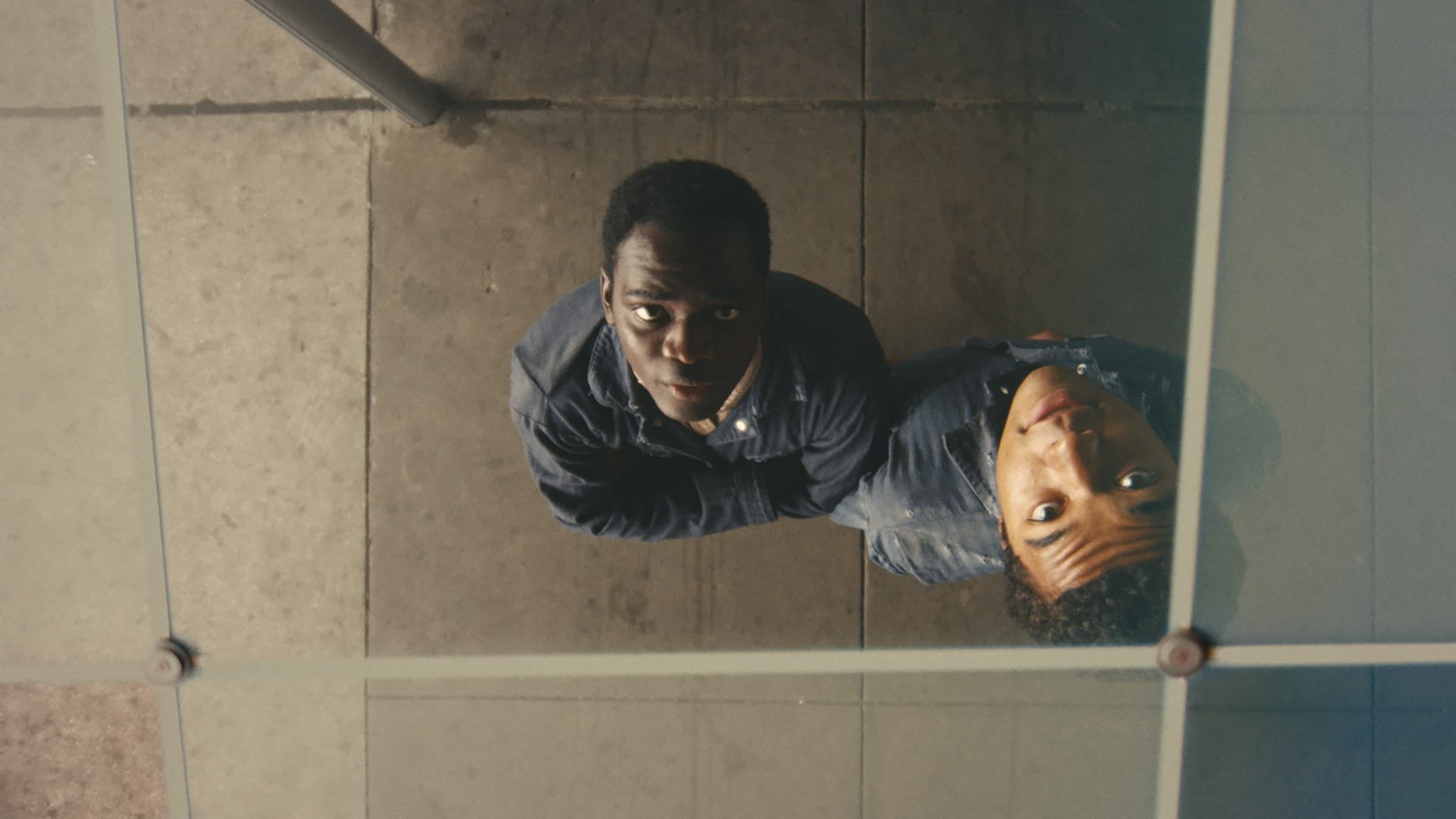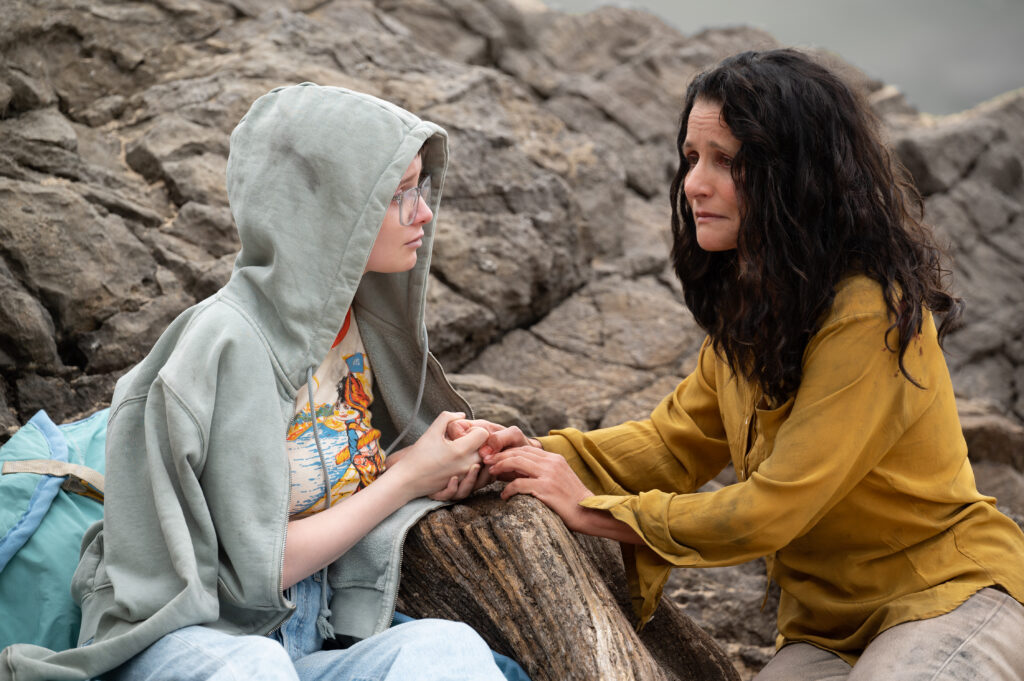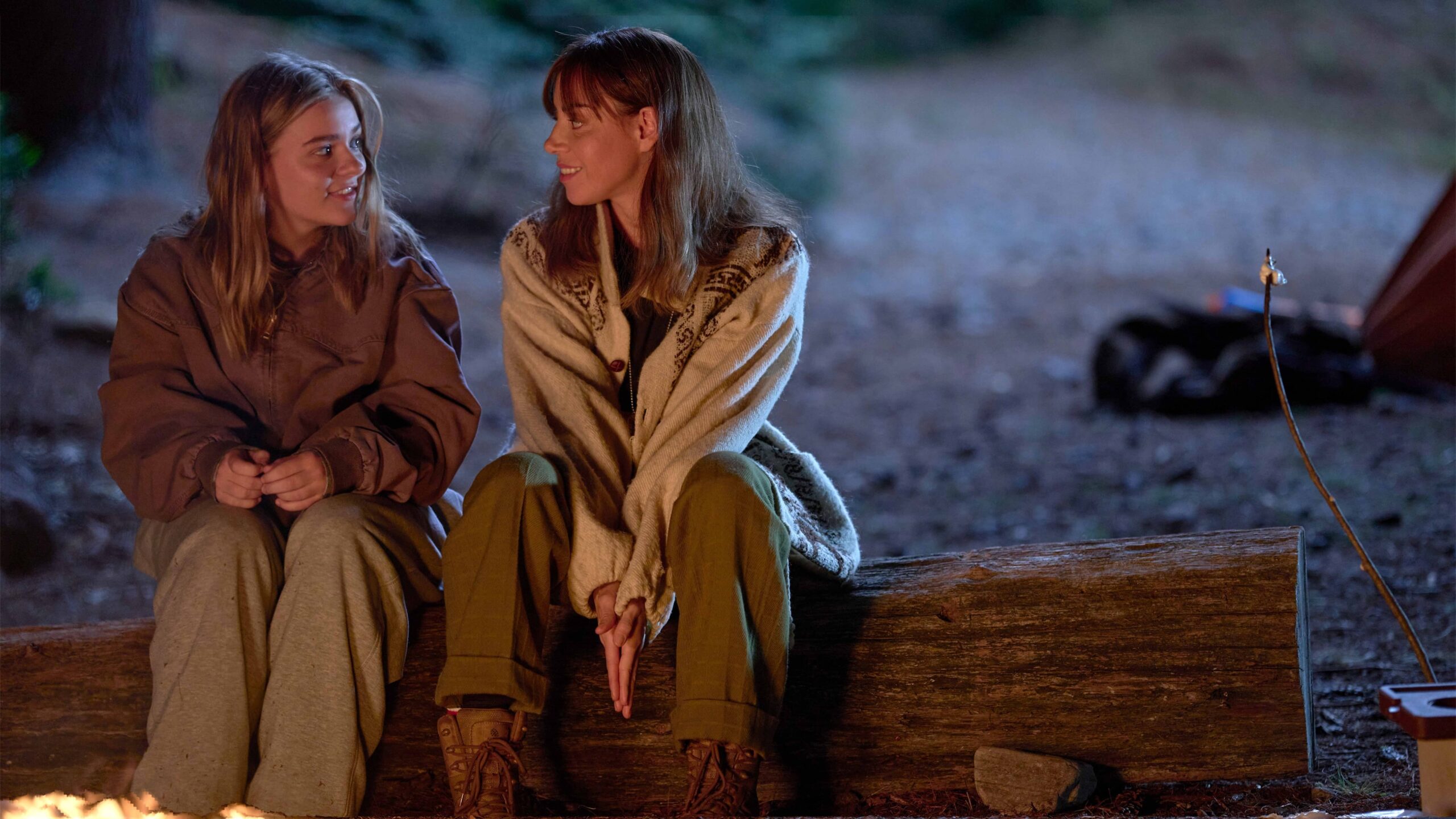
The call came around 8:30, Friday morning. As these things do, it came without presage or pageantry. A friend had died.
It happened while he was on a typical bike ride — nothing nefarious, nothing significant, just a simple fall, and that was all. He left behind two small children and a wife. She was the one who called my spouse to let her know that her husband was gone. Then she hung up, and my wife and I went about our day.
Four days later, I saw My Old Ass — a thoughtful coming-of-age story that plays by the rules but never feels derivative or stupid. It charmed me, disarmed me, brought me under its spell and then socked me in the gut.
I don’t want to give away the diabolical twist to writer-director Megan Park’s heartfelt story, though you can probably guess through association that My Old Ass has to do with the death of a loved one. It does. But Park constructs it in such a way that I hope my friend, the wife who lives, never sees the movie. It might be too much for her. Hell, it was too much for me to see it when I did. It’s been months, and I still don’t know if I’ve recovered.
Emotion v. empathy
This will go down as the year I stopped watching stories and started watching people. That might sound simple to you, but it’s been a watershed moment for me.
It’s easy to get swept up in movies. The form is inherently kinetic and undeniably exciting. Even when nothing is happening on screen, the mere presence of a camera invites possibilities. And then there’s the narrative. Sometimes, I haven’t a clue where the movie is taking me, and it’s thrilling. Other times, I know exactly where it’s going and can’t wait for it to get there. But now and then, those emotions come at the detriment of empathy.
Nickel Boys clarified this. Watching the movie floored me. Here is the story of a Southern reform school more interested in eradication than reformation, operating via racial oppression and abuse, presented with such immediacy that filmmaker RaMell Ross shoots the entire movie from the perspective of his main character.
“This is the Black mother’s worst nightmare,” Ross told me.
I spoke to Ross when he was in town to receive the 47th Denver Film Festival’s Excellence in Directing Award. I came to the interview armed with questions about form and theory, his use of first-person cinema in both Nickel Boys and his 2018 documentary Hale County This Morning, This Evening, his 2019 Film Quarterly essay, “Renew the Encounter” — “Repeat after me: The God of the camera is a colonizer” — but it wasn’t until he said the word “nightmare,” relayed to him by two Black mothers upon seeing the film, that I heard what Nickel Boys was really saying.

Role-playing
Cinema can humanize us. It can also distance us. Consider the story of Tuesday: A mother of a terminally ill child tries to cheat Death out of its due and sends the world into chaos. It’s poignant and funny — maybe not ha-ha funny, but you laugh. Writer-director Daina Oniunas-Pusić knows just about anyone, especially a mother, would sacrifice everything and everyone for just a few more minutes with a loved one.
This is what binds the viewer to the narrative and makes the whole Death-as-a-mangy-talking-bird conceit accessible. It certainly worked for me. But the more I think about Tuesday, the more I can’t help but acknowledge the pain and suffering caused by the mother’s act to avoid her own.
There’s a similar selfishness in My Old Ass — an attempt to control the past to de-pain the present — that is equally understandable, even if the goals of both protagonists are destructive. A Real Pain also flirts with destruction, but more through the act of casting pretense aside and embracing the authentic version of yourself, which some find to be refreshing while others find selfish. Funny how these things go.
Humorous but in a different key, the inmates-slash-performers of Sing Sing find a way forward by donning new roles while letting go of the people they once were. That’s something easier said than done — especially in Sean Baker’s Anora, where the roles these characters were cast in so long ago show that, at some point, the performance becomes the person. Ditto for No Other Land, where the embrace of a role and the refusal to let go is no laughing matter.
If Nickel Boys is the Black mother’s nightmare, then No Other Land — a boots-on-the-ground documentary about Israeli soldiers annexing land and evicting the Palestinians living there — is an international one. It’s also about what happens when we stop trying to be people and start accepting the roles we’re assigned. As Kurt Vonnegut put it: “We are what we pretend to be, so we must be careful about what we pretend to be.”
The inmates of Sing Sing know that all too well. So does Anora’s Ani and Vera Drew, the writer, director and star of The People’s Joker — easily one of the most anarchic movies I saw this year. And then there’s Oh, Canada’s Leo Fife, who has played so many roles in his life that he’s slipping in and out of them whether he wants to or not.
This one’s optimistic
I keep looking for trends. Connective tissues that illuminate what the world is going through, what I am going through, and the disconnect in between. Movies are the mirror held up to society and the reflections within are endless. Some are crystal clear, others are distorted and fractured, and I can’t help but see pieces of myself in all. In other years, I would count this as a positive — proof that there is space in this world, and I am still participating in it. But this year, my reflection elicits a different reaction. Now I see myself in the screen and wonder: Is the ghost in the machine me?
I’ve written this damn essay five times now. In each version, I keep circling the same question without asking it. Here it is: Am I still equipped to do this job? If my friend hadn’t died, would My Old Ass have resonated? Is Challengers a better movie than I Saw the TV Glow, or is it because the me watching Challengers is held at a safe distance while the me watching I Saw the TV Glow feels uncomfortably close? When TV Glow’s Maddy describes her favorite TV show as “more real than real life,” I can’t help but think of Nickel Boys again and my fixation on the form over the fact. Am I interested in the experience or the simulacrum?
These kinds of questions tend to arise when we get comfortable, and I’ve been pretty comfortable lately. I doubt that comfort is going to carry over into 2025. Maybe its absence will make space for clarity. That’s my hope, at least.
All movies are made by optimists — it takes entirely too much time, money, labor and chance for pessimists to succeed in this game — and I think that’s true of moviegoers too. The dark screen presents endless possibilities. But it also presents endless dead ends. I ran into a couple of those dead ends this year. They were fruitful trips in other capacities, but they’ve also come at an expense.
But here’s where the optimist part comes in: I keep returning to them. It’s been months since I first watched some of these movies, and they remain fresh in my mind while I continue to turn them over for aspects I overlooked. Some day, I’ll figure out where they want to take me and enjoy the ride.

Michael J. Casey’s Top 10 Movies of 2024
1. Nickel Boys
2. My Old Ass
3. Anora
4. Oh, Canada
5. Challengers
6. Tuesday
7. Sing Sing
8. A Real Pain
9. The People’s Joker
10. No Other Land
